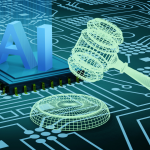Introduction
The rise of digital technology has transformed how nations, corporations, and individuals exert influence. Algorithms now shape public perception, drive economic systems, and even guide political campaigns. What once required armies or treaties can now be achieved through lines of code.
As societies grow more dependent on automation, questions of control and accountability become harder to ignore. From Hollywood stars to government leaders, everyone is caught in a race to understand — and harness — the algorithmic forces shaping our world.
Algorithms as the New Architects of Society
Every click, search, and share contributes to a vast data ecosystem that defines behavior. Algorithms curate what people read, buy, and believe, creating invisible patterns of persuasion. This unseen power influences everything from election outcomes to entertainment trends.
In response, governments are seeking ways to regulate algorithmic systems. Yet many policymakers still struggle to understand how these technologies operate. The result is a power gap between creators of algorithms and those tasked with overseeing them.
Celebrity Voices in the Age of Algorithms
Celebrities have found themselves both beneficiaries and victims of the digital machine. Platforms amplify their reach, allowing them to connect directly with millions of fans. At the same time, the same algorithms that promote them can also destroy reputations overnight.
Some stars use this power responsibly, raising awareness about misinformation and mental health. Others unintentionally fuel polarization through unverified posts. In both cases, fame has become intertwined with data-driven visibility — a dynamic few truly control.
Political Power and Digital Manipulation
Political influence has entered the algorithmic age. Campaigns now depend on predictive analytics to target voters with personalized messages. These tools can inspire civic engagement but also manipulate public sentiment by exploiting emotional data.
Across the world, governments debate whether such practices strengthen or weaken democracy. The use of AI-driven propaganda during elections has proven that technology, when unchecked, can alter national outcomes with quiet precision.
Global Reactions to Algorithmic Control
Different regions are taking contrasting approaches to digital regulation. The European Union focuses on transparency, requiring platforms to disclose how content is prioritized. Meanwhile, other nations prioritize freedom of innovation, often at the expense of privacy and security.
This imbalance has created a new form of global inequality. Countries that fail to protect their citizens’ data risk becoming digital colonies — dependent on foreign systems for economic and cultural stability.
Tech Giants and the Ethics of Influence
Companies like Google, Meta, and X now possess more user data than many governments combined. Their algorithms decide what billions see daily, effectively shaping global culture. This influence has sparked debate about the ethics of privatized digital power.
Corporate leaders argue that innovation must remain free to thrive. Critics counter that without strong oversight, these systems will continue to favor profit over truth. The world watches as regulators struggle to keep pace with technology that evolves faster than law.
The Human Cost of Algorithmic Dependency
While technology simplifies life, it also isolates. People rely on recommendation systems for news, entertainment, and even friendship. Over time, this creates echo chambers that reinforce beliefs rather than challenge them.
Experts warn that such environments erode empathy and civic understanding. When algorithms feed only what we want to hear, society risks losing the collective conversation that sustains democracy.
FAQs
Why are algorithms considered powerful today?
They determine what people see online, influencing opinions, emotions, and even political decisions.
Can governments regulate algorithmic influence?
Yes, but regulation remains difficult because technology evolves faster than legislation.
How do celebrities fit into this digital system?
Their visibility depends on algorithms, which can amplify or silence them depending on engagement metrics.
What risks do algorithms pose to democracy?
They can manipulate voter behavior, spread disinformation, and deepen social divisions.
Is ethical AI possible on a global scale?
It is possible, but it requires international cooperation and stronger digital transparency laws.
Conclusion
The algorithm has become the invisible hand guiding modern civilization. It shapes what we value, how we communicate, and who we trust. In many ways, it has replaced traditional power structures with systems of digital persuasion. Understanding and governing these forces will define the future of freedom and fairness.
The challenge lies not in stopping technology, but in humanizing it. The world must find a balance between innovation and accountability, between progress and ethics. The next era of leadership will belong to those who can navigate algorithms with wisdom, transparency, and a commitment to truth.




